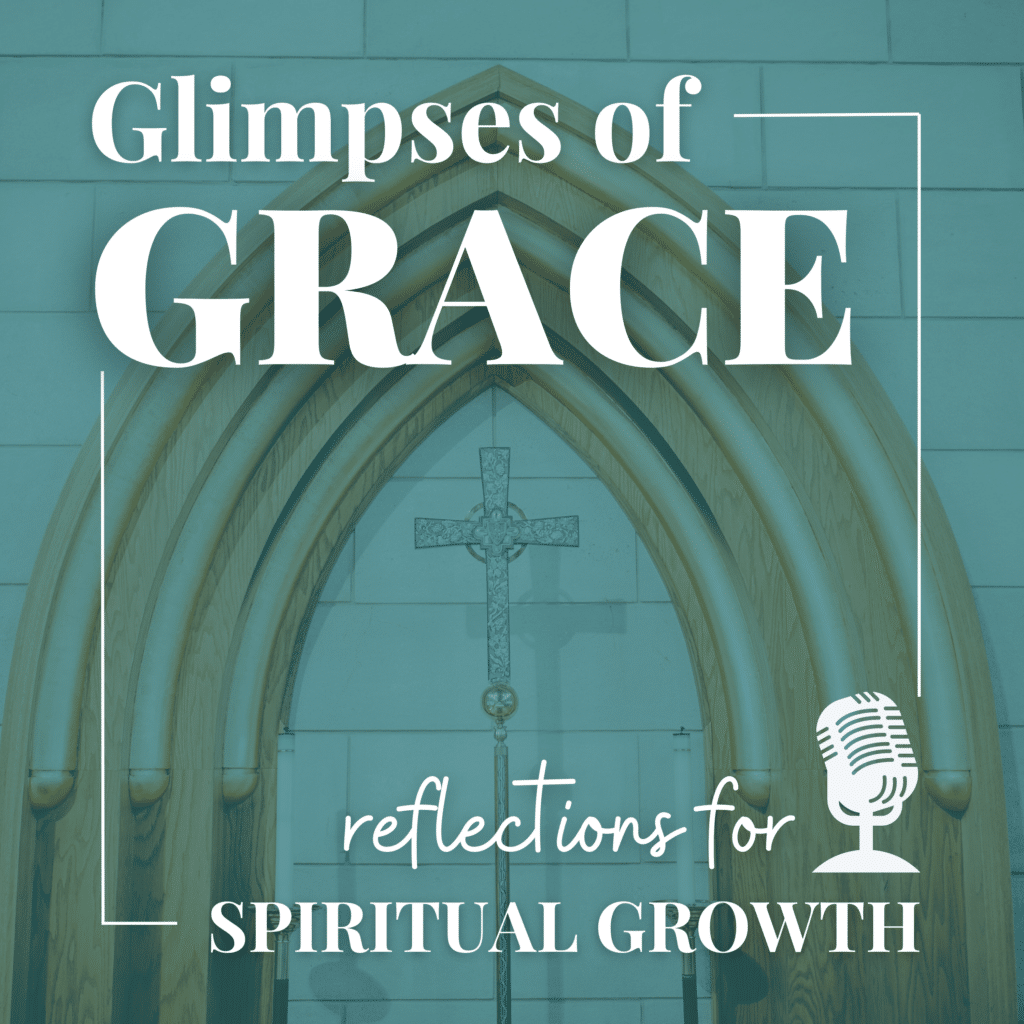In the Whirlwind
This sermon explores how life’s sudden upheavals—the whirlwind moments—can be more than disorienting; they can be transformative. Drawing from Elijah’s ascent, Psalm 77, and Jesus’ resolute journey toward the cross, it challenges us to choose mercy and to follow God not around the storm, but through it. In the whirlwind, we find not chaos alone, but the presence of a God who walks with us, leading us with grace, love, and purpose.

The Glimpses of Grace podcast is a ministry of Grace Episcopal Church in Gainesville, Georgia. We are passionate about supporting the spiritual growth of souls, and we hope these sermons and conversations meet you where you are and enrich your soul as we all continue to make meaning in the world today.
Glimpses of Grace on Spotify
Transcript
Have you ever had life upended in a moment?
A conversation that left you uncertain.
An unexpected phone call.
A goodbye you weren’t ready to say.
A change you didn’t ask for.
It can feel like a whirlwind—sudden, swirling, disorienting.
You’re left in the dust,
trying to remember which way was forward.
In 2 Kings, the prophet Elijah is taken up in a literal whirlwind.
Chariots of fire. The wind roars.
The moment is fierce, final, and mysterious.
Elisha, left behind, tears his clothes in grief.
But then he picks up Elijah’s mantle—
a remaining cloak, yes, but also the very sign of his teacher’s calling—
and steps forward.
The whirlwind didn’t destroy him.
It propelled him into the next part of his life, his calling, his purpose.
Whirlwinds don’t always come to destroy. Sometimes they come to transform.
In Psalm 77, the psalmist cries out in distress, wondering where God has gone.
But they remember: God’s footprints were in the sea, through the storm,
leading the people like a shepherd.
God’s path was the whirlwind, invisible but present.
And in Luke 9, Jesus is facing Jerusalem.
He walks straight into his own whirlwind—
into conflict, into sacrifice, into the mystery of the cross.
And when a Samaritan village refuses to welcome him,
his disciples ask the kind of question that reveals
just how much of the whirlwind they still don’t understand:
“Do you want us to command fire down from heaven and consume them?”
They are not asking about hospitality. They are asking about vengeance.
But Jesus scolds them.
Not just their suggestion—but the whole frame of the question.
Jesus doesn’t come to burn villages. He comes to build a kingdom.
And you can’t build that kind of kingdom with fire and fury.
You build it with mercy. With grace. With healing and humility.
You build it with an entirely different kind of power.
So when someone says they want to follow him, Jesus doesn’t say,
“Wonderful, welcome!”
He says, “Foxes have holes and birds have nests,
but the Son of Man has nowhere to lay his head.”
This way is hard. This way will shake you. This way is a whirlwind.
The kingdom of God is not built by people who cling to vengeance.
It’s built by those who cling to mercy, even when the wind howls.
Choosing mercy over vengeance isn’t about being a “good person.”
It’s about remaining focused—
focused on the kingdom of God and
refusing to be distracted by the urge to settle scores.
Where is the whirlwind in your life right now?
What mantle or role have you picked up—or are being asked to pick up?
Where is God leading you, not around the storm, but through it?
And what will you choose to carry with you—vengeance? Mercy?
Elisha walked into the whirlwind and came out
with a double portion of his teacher’s spirit.
Jesus walked into the whirlwind and came out carrying a cross.
We are invited to walk into the whirlwind with our eyes open,
not to destroy but to love,
not to burn but to bless,
not to win but to witness.
And maybe, in the midst of the storm, we’ll discover something else:
That God is not just above the whirlwind, but in it—with us, guiding us, saying,
“This is the way. Walk in it.”
This God walks with us through storms and silences,
chooses mercy over fire,
calls us not to vengeance but to love.
Rachel Held Evans and Matthew Paul Turner say it best in their book,
“What Is God Like?” which speaks to the very nature of God.
It may be written for children, but it speaks deeply to all of us.
Let this be our meditation and our blessing.
Any children who want to come forward and sit with me
as we imagine: What is God like?
Let us pray.
God, you are like the wind—mysterious, wild, and always moving.
You are like the light—gentle, steady, full of warmth.
You are like love itself.
As we move forward in our worship together and into the world in your service,
carry us in the whirlwind of your grace.
Shape us into people who choose mercy, who walk the way of Jesus,
and who live with wonder.
Amen.